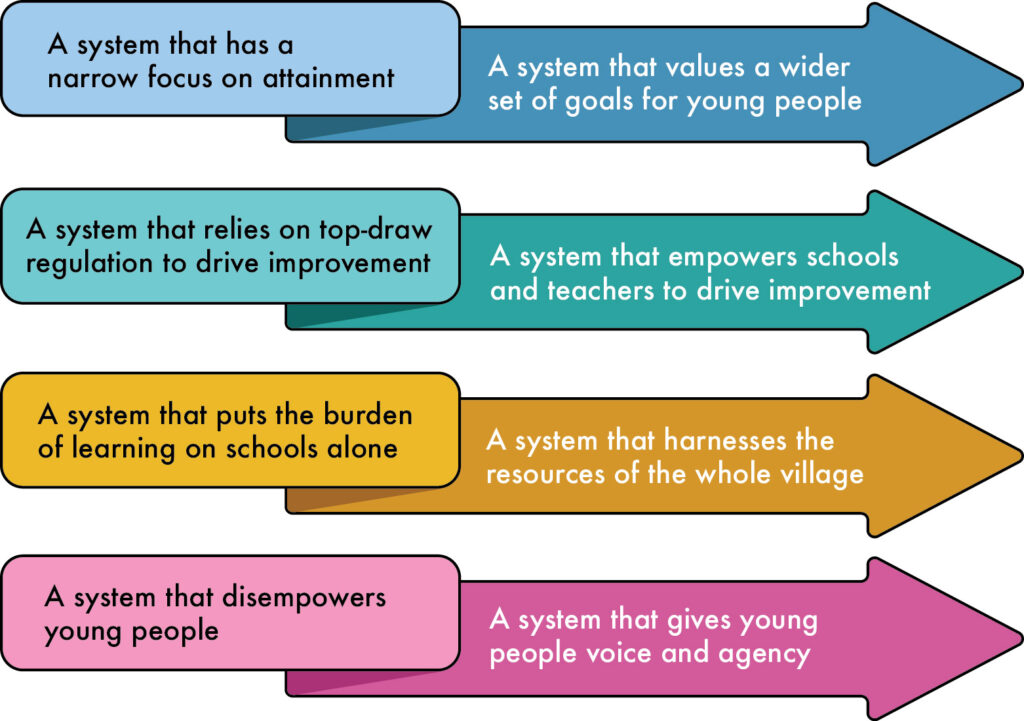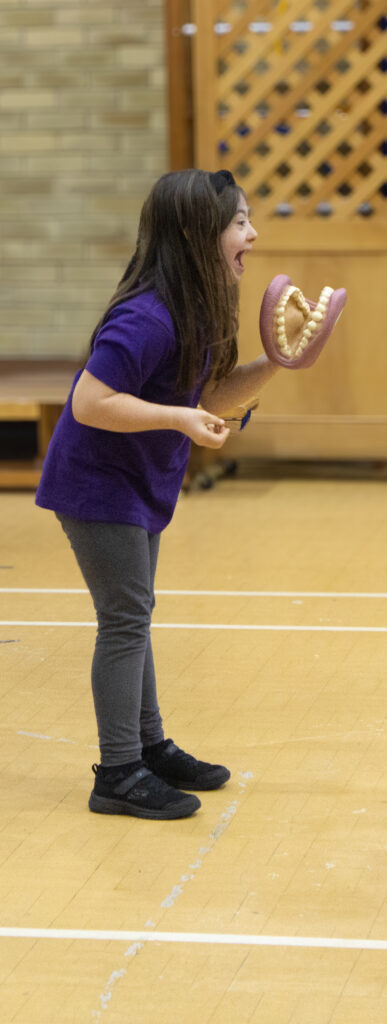Four Shifts to Drive Real Change
David Jackson
This article explores insights from the Institute of Public Policy Research (IPPR), which, in its 2023 report ‘Out of Kilter’, proposes four shifts, which together encapsulate the fundamental changes needed to rethink education.
Introduction
Conversations about rethinking education often centre on a long list of issues that need to be addressed, for instance funding, or school buildings, or teacher recruitment and retention, or admissions and so on….
But if you believe that all young people have the right to an education that builds their self- esteem and efficacy; that recognises and values their unique talents; that helps them to form meaningful relationships and sets them up for fulfilling progression pathways from school, then addressing these ‘nuts and bolts’ issues, while necessary, is woefully insufficient.
Education is in need of a transformational vision. Schools do a great job in the circumstances, but the system is broken and the model of schooling out of date.
There is no worse example of this than SEND provision. However, the fault lines in SEND are just one component of the system’s challenges. SEND is not the problem, it is the symptom of a more all-embracing set of issues.

Four Shifts That Could Transform Education
I listened recently to a presentation discussing the findings from a 2023 report called ‘Out of Kilter’ by the Institute of Public Policy Research. Not heard about it? There’s a surprise! The report was the result of a massive consultation exercise and proposed some very significant changes with huge potential, but it was released to a largely indifferent policy audience.
At the heart of ‘Out of Kilter’ sit four proposed shifts, which IPPR identify as necessary to create an education system that unlocks the potential of all young people, enabling them to thrive. If these four shifts resonate with you, that is unsurprising, since ‘Out of Kilter’ draws on the findings of a major consultation with young people, parents and employers.
Rethinking Education First Requires Rethinking Assessment
 The order in which the four shifts feature is also important. The first shift, from a system narrowly focused on attainment to one that values a wider set of goals, is the ‘crucial cog’; the magic key that will unlock all others.
The order in which the four shifts feature is also important. The first shift, from a system narrowly focused on attainment to one that values a wider set of goals, is the ‘crucial cog’; the magic key that will unlock all others.
To question the current system is to be accused of undermining standards – ‘standards’ as a synonym for approaches developed many decades ago to sift and sort society, with assessment approaches that condemn 40%+ of young people to leave school feeling that they have failed, rather than that all can succeed.
Until the UK has an assessment system that is able to reward and recognise the diverse aptitudes, talents and passions of all young learners; one that values learning and achievement other than academic subject knowledge; one that recognises the wider interests and passions pursued by all young people, both within school and out of school, we will have a system that maintains the status quo and fails too many.
‘Out of Kilter’ was authored by Harry Quilter-Pinner, Efua Poku-Amanfo, Loic Menzies and Jamie O’Halloran, September 2023, published by the Institute for Public Policy Research and supported by Big Change and the Paul Hamlyn Foundation. The full report can be accessed here: Out of kilter: How to rebalance our school system to work for people, economy and society | IPPR.
David Jackson has been a teacher, a headteacher, a founding director at the National College for School Leadership and, for the last 15 years, has supported educational innovation projects in the UK and internationally. He is a member of the editorial team for The Bridge.
Professional Prompts
1. To what extent does your school’s assessment system “reward and recognise the diverse aptitudes, talents and passions of all young learners”?
2. Do pupils feel that the school recognises their culture, beliefs, wider interests and passions pursued within school and externally”?
3. What might need to change for this to happen and for every learner to feel that their beliefs, culture, ideology, talents and interests are affirmed?

